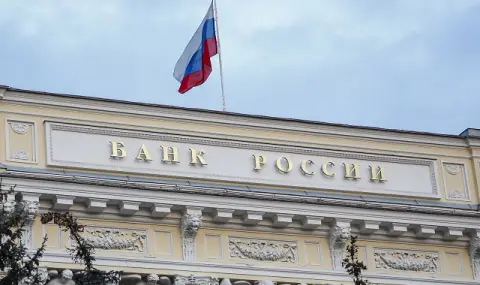Is it possible to talk about the problems of the Russian economy, provoked by the war, without uttering the word "war", analyzes the BBC Russia Service.
Here is a recent example. "This is a primitive model of economic growth - money from the budget and money from credit institutions are directed to the consumer market. Goods become more, people do not start producing more, their prices rise, labor productivity does not rise, but falls. This is where today's growth model is rooted", so the head of "Sberbank" German Gref described the current state of the Russian economy at the Petersburg International Economic Forum 2024.
"Sberbank" annually organizes a business breakfast at the Petersburg International Economic Forum (PIIF). At this event, Gref, as well as some officials and businessmen, allowed themselves to criticize the situation in the country's economy. The quotes are regularly in the news.
For example, in 2022 the business breakfast of "Sberbank" was remembered for the very emotional speech of billionaire Alexei Mordashov that Russia may need war.
In 2024, the breakfast participants avoid the topic of war and confrontation with the West, as well as the reasons for the current situation in the economy - Gref literally calls the geopolitical situation "specific". But this did not prevent him from making a rare pessimistic characterization of the Russian economy.
"Today, our model of economic growth is extremely simple. Constantly increasing budget expenditures, mainly in machine building, lead to an increase in wages in enterprises. The spread of wage increases throughout the economy is happening at a very fast pace, we've never seen this before," Gref described the situation in the economy.
Gref kept silent about why machine-building developed so quickly and why the state began to spend so actively, as well as about the high salaries of Russians fighting in Ukraine.
There is also a second driver of this growth - loans, Gref admits, this gives the economy a chance, but "not long-term", and in general the growth of the Russian economy is "fragile". Gref calls low unemployment and high capacity utilization - usually noted by Vladimir Putin as very favorable factors - signs that "we are on the edge of economic growth".
The level of complexity of products in the Russian economy has not changed in recent years, dependence on oil and gas remains, Gref listed. He sees a way out of this as the development of technology, above all artificial intelligence, but so far there are not many signs of this: competition in the economy remains low, investments in new technologies are relatively small.
Unexpectedly, this rhetoric was supported by Deputy Prime Minister Dmitry Chernyshenko: he spoke of the demographic gap and falling labor productivity in Russia, which do not bode well for the economy. "Now we all believe that artificial intelligence will save us. What else can save us? Because now only this is new, everything else is repeated year after year?" - said Chernishenko. The question sounded rhetorical.
